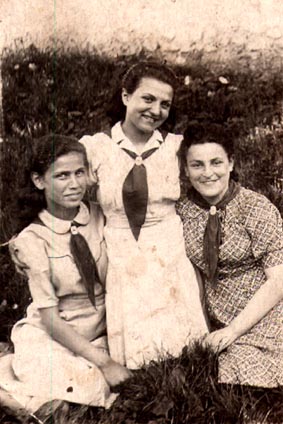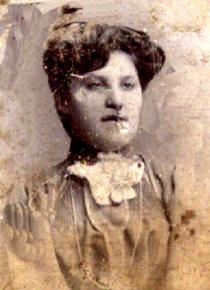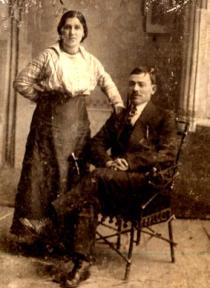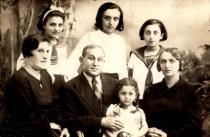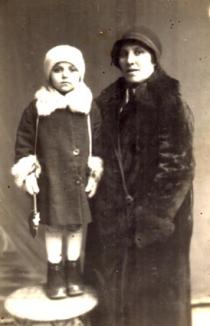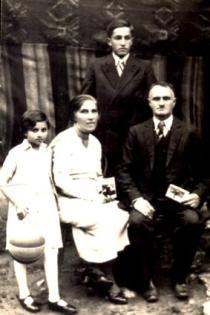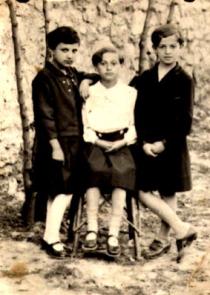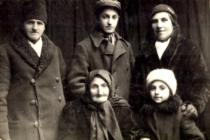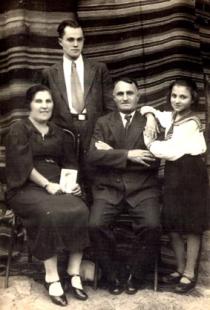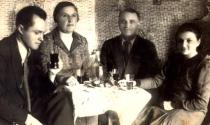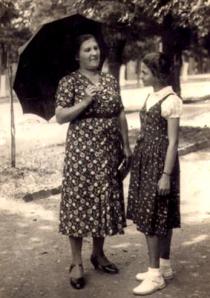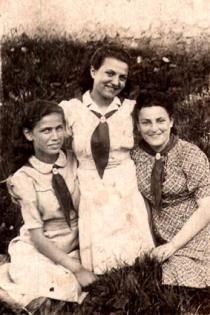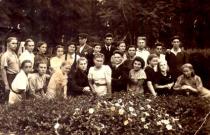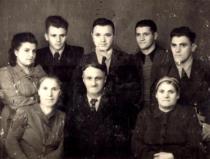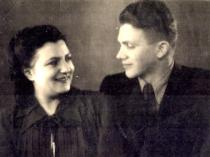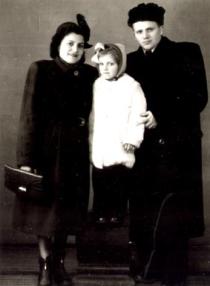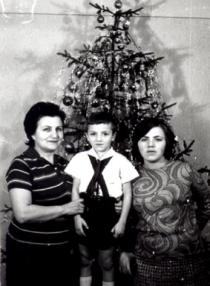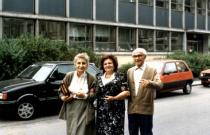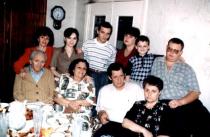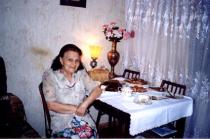This is me, in the center, my friend Raisa Roitman is to the right and Frida is to the left. The picture was taken in Rezina in 1940 on the day when we became pioneers.
My family decided that I should go on with my studies. In September my mother took me to Orhei and I entered a lyceum there. I was only one year in Orhei and came back home. In late June 1940 Soviet troops entered Bessarabia and the Soviet power was established. It was rather peaceful. We went out to meet the Soviet soldiers, marching in the streets. They looked dusty, dirty and exhausted.
Soon after the Soviets came to power they started to fight against the kulaks and carried out nationalization of property. Many owners of stores and other entrepreneurs weren’t only sequestrated of their property, but also exiled to Siberia. Many of our acquaintances were predestined for that. The family of my mother’s friend Slava Milstein, whose father was the owner of the mill, was also exiled. Owing to Abram’s position as the chairman of the municipal council, we were treated loyally. Father was given the opportunity to sell out his goods and after that his store was requisitioned. Even the apartment, purchased with the money earned due to hard work, was to belong to the nation-wide property. We weren’t evicted though, and kept on living in the house which wasn’t owned by us any more.
Mother was crying stealthily, and didn’t want to say anything to Abram, as he considered all actions of the Soviet regime to be right. Father, who turned sixty, worked as a foreman in some enterprise. I went to the eighth grade of the ordinary Soviet school. First, it was hard for me to study as the classes were in Russian. I was surprised that it didn’t take me long to become proficient in Russian. Mother helped me a lot in that, as she was good at Russian. I was a good student. The first year of studies at the Soviet school went by very quickly. I became a pioneer and finished the eighth grade ranking top among the students as usual.
